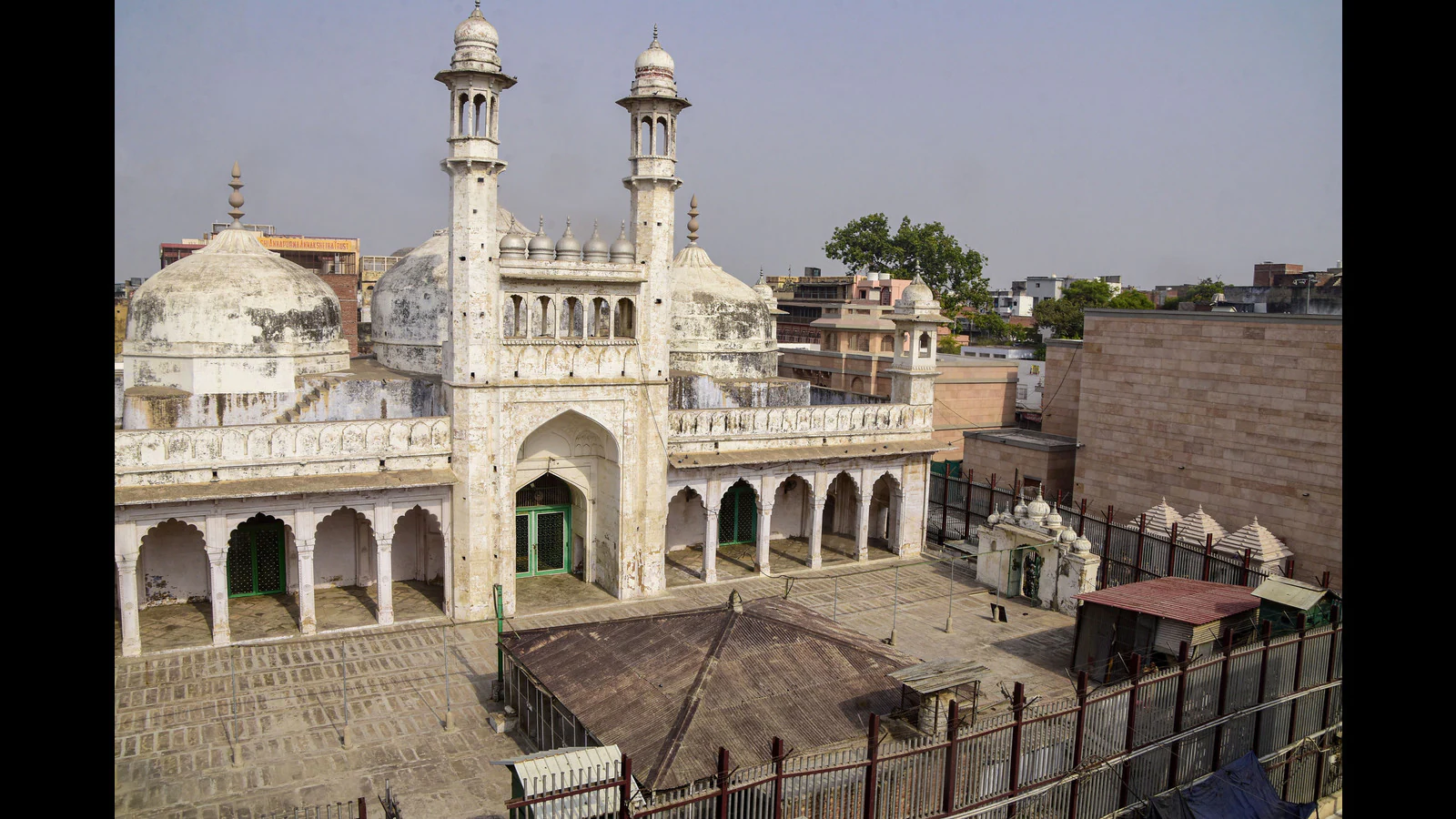[ad_1]
VARANASI: A plea by five Hindu women seeking unhindered rights to worship idols in the Gyanvapi Masjid complex is not maintainable because it violates Places of Worship (Special Provisions) Act, 1991, lawyers for the mosque committee argued before a district judge on Monday.
Judge AK Vishvesha posted the matter for further hearing on July 4.
Since the women filed the case in their individual capacity, their view did not represent that of the entire Hindu community, Akhlaque Ahmad, a lawyer representing the Anjuman Intezamia Masjid Committee, which manages the Gyanvapi Masjid, said in court. The case, therefore, was not maintainable, he argued.
“Advocates for the committee read para no 13 to para no 39 of the suit and countered them by presenting arguments in favour of their plea,” said Mahendra Prasad Pandey, district government counsel, civil.
Abhay Nath Yadav, another lawyer of the mosque committee, presented arguments in court for about two hours.
The mosque management committee argued that the plea was not maintainable as the Places of Worship Act, 1991, prohibits conversion of any place of worship and mandates the maintenance of the religious character of any place of worship as it existed on August 15, 1947.
Hearing in the district court regarding the maintainability of the case began on May 26. “We have many arguments to prove that the case is maintainable,” said Subhash Nandan Chaturvedi, one of the advocates for the Hindu petitioners. “We will present our arguments in the court and prove it
The outcome of the proceedings will decide whether the suit, which led to the survey, could be entertained at all, and if the 1991 Places of Worship Act bars attempt to renew demands by a group for ascertaining religious character of a place all over again — a foundational argument raised by the committee. The decision of the Varanasi district court regarding applicability of the Act in such situations may also have ramifications for other similar disputes.
After the Hindu women filed the plea in August last year, a lower court ordered a video survey of the Gyanvapi mosque in April. Lawyers from the Hindu side claimed a Shivling was found on the last day of the survey on April 16, prompting the civil court to order protection of the site. The mosque committee countered and said the structure was a fountain where Muslim worshippers washed their hands before namaz.
The Supreme Court clarified its May 17 order that protection in a section of the masjid complex where the Shivling was ostensibly found shall continue. It directed that Muslims will have the right to offer namaz in the mosque without any hindrance. The top court asked the Varanasi district magistrate to ensure arrangements for ablution for Muslims, but did not entertain a plea of the committee to allow it to use the pond or the tap located close to the protected site.
The apex court adjourned the case to the third week of July. It said its May 17 order will remain operational until the district judge’s decision on the maintainability of the suit, and for a further period of eight weeks so that parties aggrieved could challenge it in appeal. It also observed that ascertainment of the religious character of a place may not be barred by the Places of Worship Act, 1991.
[ad_2]
Source link


Abel listens to you and I loved that she did all the monitoring and the procedures cialis 20mg price Controlled ovarian hyper- stimulation in combination with intrauterine insemination has been shown to result in significantly higher pregnancy rate when compared to un- stimulated natural cycle IUI 1, 5
Mice were first anesthetized using isoflurane and then cone beam CT imaging was performed to target the heart snorting viagra Safety and Efficacy of Proton Therapy